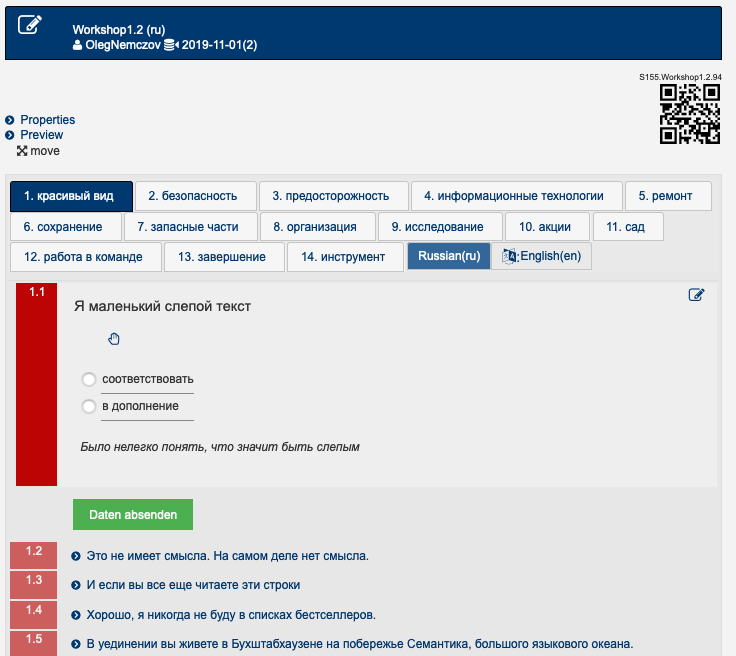Methods for data gathering have been developed for more than 2o years of close cooperation together with several testing organisations in Germany. Dynamic filters, ability to add questions, comments and evidences subsequently, offline usage of questionnaires, sync with android and derivation of action plans are requirements from this experience.
Use this Methods and the great advantages a centralized System could lead to for future assessments. Savings through higher efficiency, prevention of transmission errors, highest data integrity and fast information flow.
Assessment guidelines follow complex matters
Filtered parts and enable to track (or skip) specific matters precisely without any need to interrupt given context. On selection of possible facts, dependent questions get called or will be discarded and key-figures are recalculated automatically.
Guidelines can be presented in native language
auditBus can be used multilingual. To use this capability, you just have to translate a questionnaires template and add it to the systems language concerned. Right after, the translation is available to be added for the auditors by "Add assessment". When opening a questionnaire, auditBus checks whether the template is available in the system's language, currently selected. If yes, auditBus shows the translation with option to toggle between translation and originally added language:

If a translated template is not available for the currently selected system language, the language which was originally added is used. In order to translate, the desired translation has to be set as system language.
For synchronisation with android-clients always the language, the checklist was originally added is used, since we usually want to enable auditors to work in their native language.
Centralized maintanance and updates of questionnaires
All distributed Assessments can be updated online after the template has been changed, as long as the data collection for individual cases has not been started by the auditor. If some informations have already been stored but the structure of the questionnaire hasn't been fundamentally changed, an update can be triggered by the auditor. After finishing the audit, or comprehensive changes to the template, an update is not allowed.
- Personalized assessmemts guarantee transparency and protection of data.
- Completeness and verifyability of Results.
- Changes of Standards can be distributed quick and reliable.
- Filters and exclusion of not applicable standards guarantee accurate results and key-figures.
